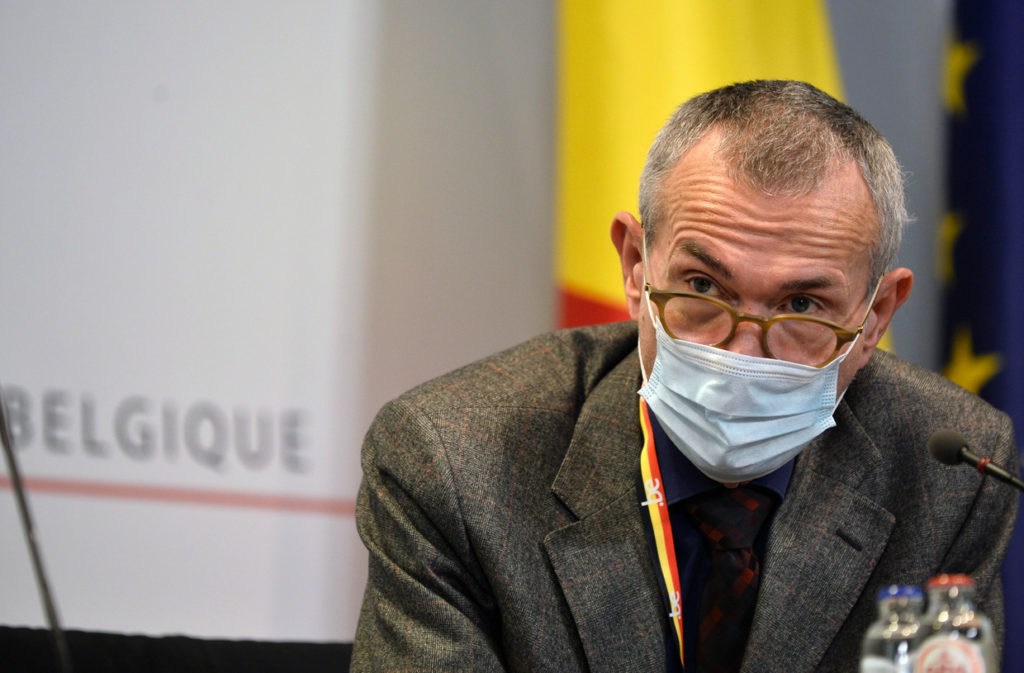Belgium’s public health ministers announced the country’s coronavirus vaccination strategy, including the order of priority groups to receive the vaccine, during a press conference on Thursday.
"We have a view on not one, but several working vaccines, and there are more in the pipeline," said Wouter Beke, president of the Interministerial Conference on Public Health. "The process is supervised entirely, because safety is essential."
"It seems that 2021 will be a new start, after a year that we might want to forget, but cannot forget," he said. "It is not unthinkable that we will be able to start the first vaccinations at the beginning of January. To a limited extent, because the number of vaccines available will not yet be so high."
What's the Order?
These population groups will be vaccinated as a matter of priority, in this order:
1. All residents and staff in residential care centres for the elderly, followed by those in other collective care institutions, including volunteers.
2. Healthcare personnel in hospitals, and healthcare personnel working in the first line.
3. Other staff members working in hospitals and staff members of health services, such as centres for vaccination and cancer screening, Child & Family,... This category includes all people who, while doing their jobs, are at risk of being infected, but the risk is lower than for the above category.
4. People aged 65 years and over, either indiscriminately or in descending age categories. This will depend on the availability of the vaccine.
5. People between 45 and 65 years old with specific underlying disorders, such as obesity, diabetes, high blood pressure, cardiovascular diseases, chronic lung, kidney and liver diseases, etc. The list of conditions is not yet definitive.
6. People working in an essential profession, according to criteria that will be further defined.
Where will it happen?
Where all these people will be vaccinated will depend on what stage of vaccination we are at. Health care personnel will be vaccinated at their workplace. Care centre residents will be vaccinated in the residential care centre where they live.
Related News
- Belgium set to receive total of 22.4 million Covid-19 vaccine doses
- Belgium will start vaccinating population from 5 January
- Care homes, healthcare, hospitals: Belgium's vaccination order explained
What's the Timeframe?
Vaccinations will be phased, depending on the number of vaccines available at the time.
In phase 1a, the 600,000 doses of the Pfizer/BioNtech vaccine - that is expected to be available at the beginning of January - will be used for residents of residential care centres and care personnel. These vaccines must be kept at a very low temperature ( -75 degrees Celsius).
"We expect the first vaccines in January," said Xavier De Cuyper, administrator general of the FAMHP. "Pfizer-BioNtech will deliver approximately 600,000 doses (for 300,000 people). Pfizer's vaccines must be given in two doses, with three weeks in between."
In phase 1b, more vaccines that can be kept at low temperatures will be used for people over 65 and high-risk patients.
Phase 2 can start when a sufficient supply of vaccines is available. Low-risk patients will then qualify. It may also be possible for vaccination to take place in companies and schools during this phase.
"There are still uncertainties about the timing of availability, and the precise operation of the vaccines per target group," said Pedro Facon.
The hope at the FAMHP is that by March-April - if all goes according to plan - there will be an acceleration in the production of the vaccines and that the various phases can take place together.
Who Will Give Out The Vaccine?
The vaccines will be administered by general practitioners and nurses. Due to the large number of people that will be vaccinated, additional staff may be called in.
Help has already been offered by the White-Yellow Cross, an organisation which specialises in home care and wants to offer all its nurses training to be able to administer coronavirus vaccines - although most are already familiar with vaccines. The army could also help.
Collecting the coronavirus vaccine from the pharmacist and having it administered by your general practitioner, like the flu vaccine now, could become a possibility in the future, as well.
Maïthé Chini & Jason Spinks
The Brussels Times

